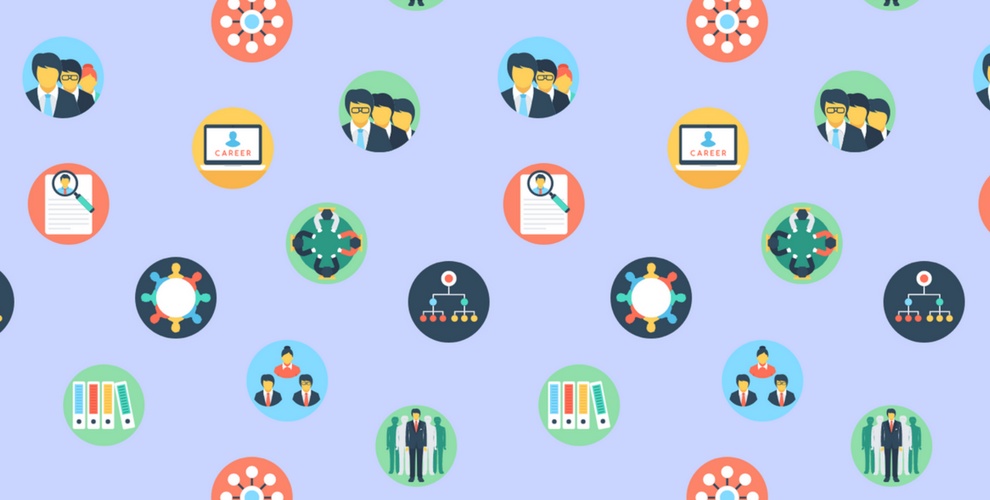So maybe you just secured an interview, or you’re waiting on that call from the employer to schedule one, and you want to be prepared to wow the employer… Well, you’re in the right place!
Unfortunately, interviewing can be a very nerve-racking and anxiety-inducing process so we’ve put together some tips in this student guide to help you before, during, and after the job interview.
Let’s get right to it!
Interviewing
Tip 1: Be ready & responsive!
Once you’ve applied to a few jobs, keep your phone close to you and be ready to reply to any calls or emails you get from employers. Check your inbox often and respond to emails from employers promptly. The interview process doesn’t begin the moment you enter the interview room! Employers take note of your communication style and skills over email and phone as well.
And then be patient…

Tip 2: Research the role
Research and prepare for the interview by:
- Looking up the company history, future plans, interesting initiatives, mission, values, and social media pages
- Searching for the interviewer on LinkedIn and taking a note of any points that stand out to you, (commonalities, cool interests etc.)
- Reading the job description once again and researching the job duties to get a better idea of the role
Tip 3: Google the questions, rehearse your answers
Reading this blog post is a great start! It’s absolutely crucial to show your incessant curiosity through knowledge of their business and how you can add value. We also recommend Googling some industry-specific interview questions and watching out for these three:
- “What are your strengths and weaknesses?”
The secret with strengths is to keep yourself from humble bragging, and the trick with weaknesses is to talk about something you’re already working on improving. Two to three strengths and weaknesses is good enough, you likely won’t have time to mention all three but take your pick based on the flow of the conversation or the role you’re applying for.
- “Tell me about yourself.”
With this question, the interviewer is looking for something to remember you by. What’s unique about you; have you taken any interesting trips? Cool college courses? Undertaken any particularly exciting voluntary/internship/work experiences? Consider all of those in relation to the role you’re interviewing for.
- “Tell me about a situation where you…”
This is a typical behavioural question where the employer is trying to get an idea of how you would behave in a similar situation if you were to be hired. Use the STAR technique to help with your response:
S – describe the situation
T – explain your task
A – talk about how you acted (your behaviour)
R – discuss the results of those actions
As you research the most common interview questions, take a read through the UptoWork blog for examples of good and bad answers.
Tip 4: Look sharp!
Physical appearance is part of the first (and second and third… ) impression you’ll make as soon as you begin the interview. Make sure your hair, nails, and clothes are all groomed and smell fabulous (but not too fabulous, a light cologne goes a long way). Here are some extra some tips!
Tip 5: Have your portfolio with you
Carry your portfolio with you, either in a folder or on a digital device. Your portfolio should have a copy of your CV and, depending on the role, relevant work samples. Remember, work samples don’t have to be from previous internships or jobs, they can be part of your university coursework. There are plenty of ways to create online portfolios. For example, Seelio.com allows you to set up your portfolio for free, online, so you can add a link to your page on your resume (in PDF format), add it to your Oliv profile, LinkedIn page, or link it out in emails easily.
Have a notebook on hand to take notes, remind yourself of the points you need to mention (strengths, weaknesses etc.), and to recall the questions you need to ask the employer. This will not only make you look more structured and prepared, you’ll feel like it!
Tip 6: Show up.

There is absolutely no excuse for not showing up to an interview. Ever!
Employers have heard every excuse in the book:
- “I missed my alarm”
- “I forgot it was today”
- “I don’t have a ride”
- “The taxi was late”
- “I didn’t know the location”
- “There was traffic”
People can always tell when you’re telling the truth! If there really is an emergency or another reason why you absolutely can’t, make it a priority to let the employer know as soon as you can and request to reschedule at their convenience. If you’re no longer interested in the position, thank the employer for their time and for inviting you for an interview and let them know that you’re not interested in the position anymore.
Tip 7: Ask questions
Remember, an interview is a two-way process. Make sure you ask questions. It demonstrates preparedness and confidence, but it also helps in your understanding of the role and whether it’s the best fit for you, amongst other things.
- “What type of tasks will this role be doing on a daily basis?”
- “What are some special projects the candidate can expect to work on?”
- “Will there be a direct supervisor for the candidate?”
Feel free to ask the interviewer about what the typical hiring process is when they onboard a new member – this will give you some insight on what to expect moving forward.
And don’t forget to ask the golden question: What does success look like in this role?
Tip 8: Smile!

Get comfortable. Relax. Be confident. You’ve made it this far because you have the right skillset!
Following Up
Tip 1: Thank You notes
Thank you notes are wonderful things.

Everyone loves receiving a little thank you, whatever its for (well, unless it’s “thank you for not being mad at me for running over your cat with my car…”). Use a short thank you email to a) thank your interviewer for their time, b) make yourself memorable amongst other candidates, and c) add any final thoughts you may have about the interview – this includes a note about a question that you maybe didn’t answer as well as you hope during the interview. Aim to send your thank you note out before the end of the day.
“Hi [name],
Thank you so much for meeting me today. It was great to chat with you about the [position] at [company]. I enjoyed our brief discussion about [something interesting that may have come up] and it was a pleasure to learn more about the role and I’m very excited about the potential to join the [department] team.
I look forward to hearing back from you.
Thank you!”
Tip 2: Follow up
If you haven’t heard back from your interviewer, send a short follow up email once a week has gone by – remember, this is different to your thank you email.
“Hi [name],
I wanted to quickly follow up on our interview and conversation last week regarding the [position] at [company]. I wanted to reiterate my interest in the position and would love to be a part of the [department] team.
Please let me know if you have any questions!
Looking forward to hearing from you.
Thank you!”
But don’t catapult email after email into the employer’s inbox when you don’t hear back in a few hours!
Tip 3: Listen & respect the process
When you begin the job hunting and interview process, take note of what the experienced professionals tell you about their industry and the working world, in general. From dress codes to deadlines, listen carefully to what your interviewer or hiring manager tells you and comply. Like tip 7 above says, don’t be afraid to ask questions, but make sure you ask in the right situation.
Tip 4: Easy on the big questions
Reserve the big questions about salary, benefits, days-off, transport, accommodation etc. after you’ve met with the employer(s). Employers can become apprehensive about a candidate’s fit for the role if salary and benefits is the first thing you ask about. As a candidate, it’s best to focus on the role and your fit.
P.S. If you want tips on informational interviews, check this out.

